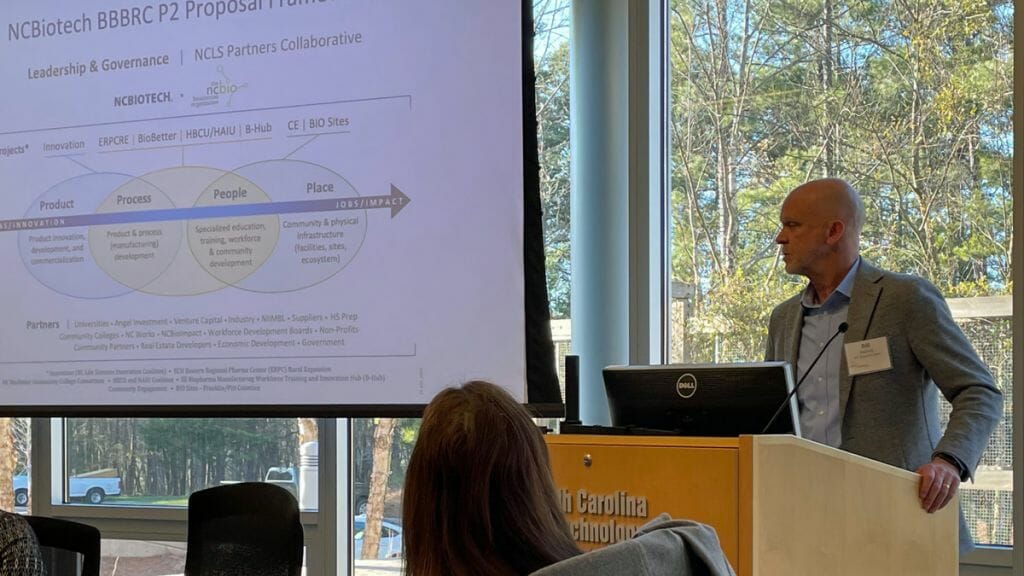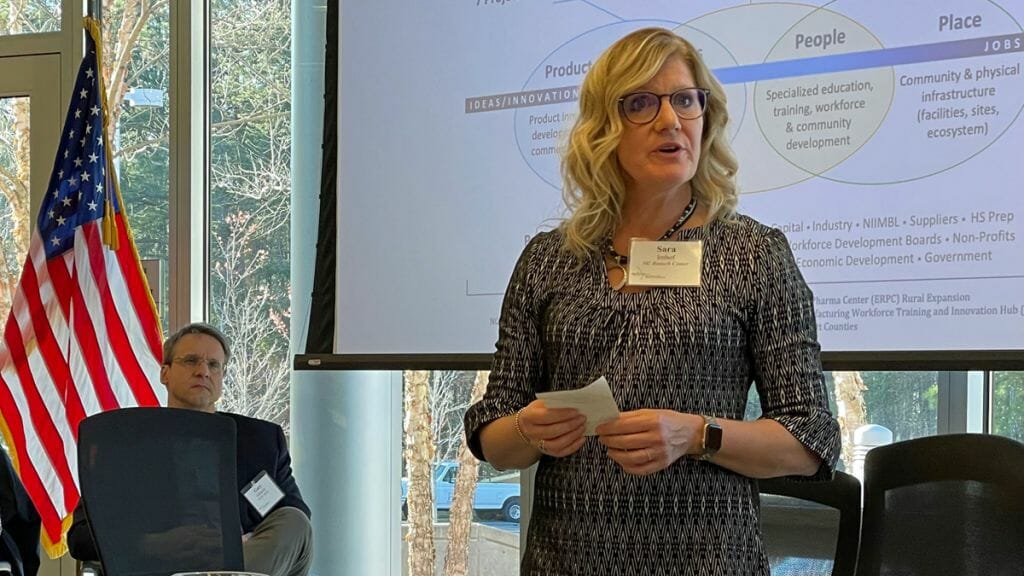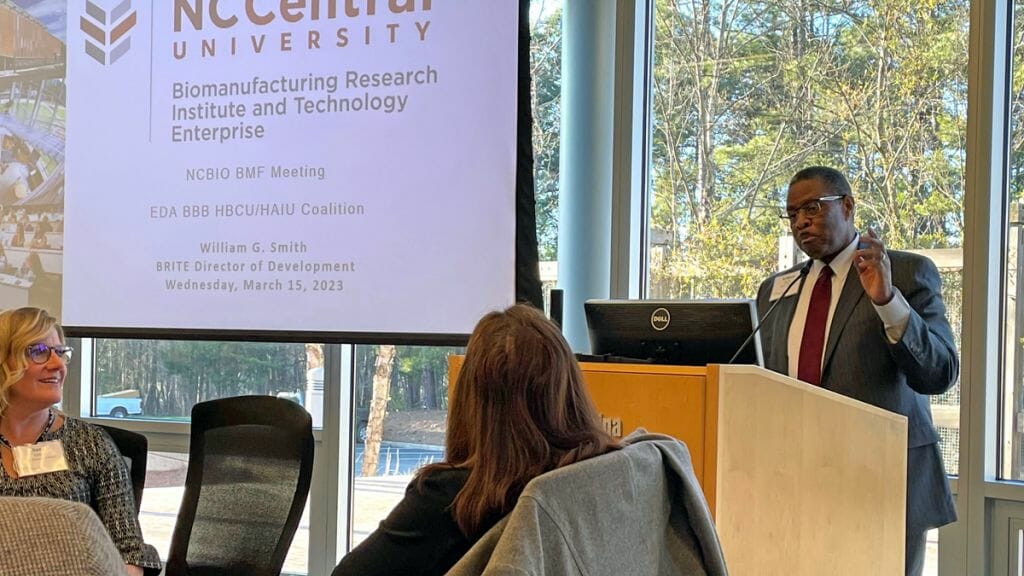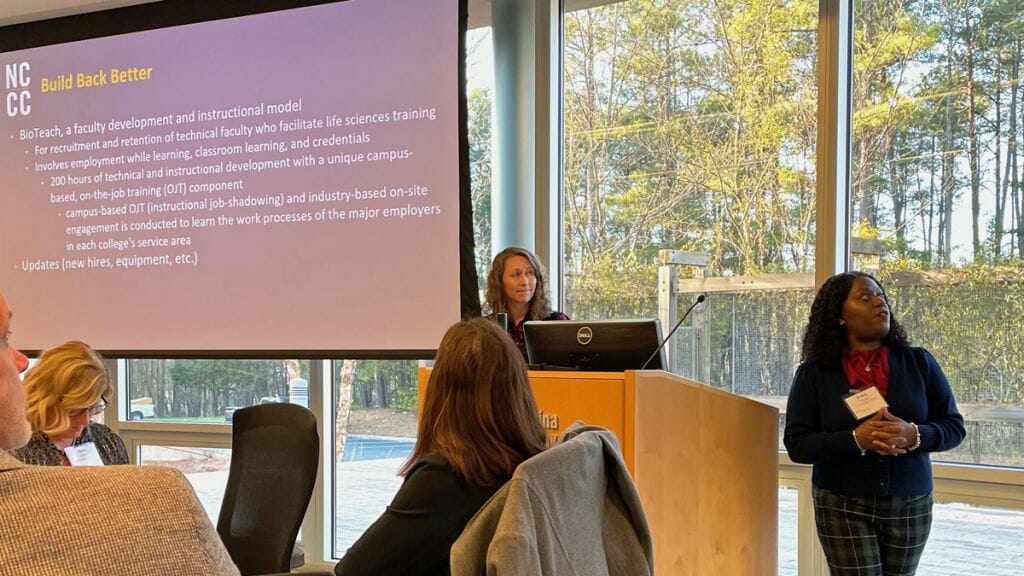BMF meeting explores $25 million Build Back Better grant projects
At the March 15 meeting the NCBIO Biotech Manufacturers Forum, attendees received updates on the $25 million Build Back Better Regional Challenge grant awarded in the fall.
Representing the various organizations involved in the grant were
- Bill Bullock, senior vice president, NC Biotechnology Center;
- William Smith, director of development, BRITE at North Carolina Central University;
- Erica Vilsaint, executive director, BioNetwork; and
- Lisa Smelser, program director, Biotechnology, Central Carolina Community College.
In September, a statewide coalition of public and private partner organizations and institutions led by NC Biotech and including NCBIO received the award from the U.S. Economic Development Administration’s Build Back Better Regional Challenge. The grant will support a number of life sciences workforce initiatives collectively called Accelerate NC:
- Workforce diversification led by NCCU’s Biomanufacturing Research Institute and Technology Enterprise.
- Expanding training access and faculty recruitment led by the North Carolina Community College System.
- Community engagement efforts led by NCBiotech.
Key industry partners provided 20% in matching funds for these projects.
John Wagner, BMF program director, kicked things off with a recap of recent NCBIO activities, which included the Legislative Reception, DEI programming, forums, planned updates to the NCBioImpact website and the CSBI survey.
Bullock and Sara Imhof, NC Biotech Senior Director of Focused Initiatives, filled the group in on the history of the BBB grant. There were more than 500 proposals originally submitted nationwide with more than 20 coming from North Carolina. Sixty proposals were selected for a first round of planning money. Two of the North Carolina projects received the major Phase 2 award.
“We really built this [proposal] around the notion of how to better connect product innovation to process innovation, developing the people, education, training and, ultimately, place in community,” Bullock said.
Three elements comprise the Accelerate NC initiative:
- The BioBetter Consortium is led by the NC Community Colleges and includes 10 community colleges and BioNetwork. The goal of the consortium is to increase enrollment in the colleges’ life sciences programs, especially targeting historically excluded, rural and distressed populations. The consortium will provide supplies and equipment for hands-on training and assist in recruiting and training faculty.
- The HBCU/HAIU Coalition led by BRITE at NCCU will deliver bioprocess training workshops at six institutions serving minorities in North Carolina.
- Community Engagement efforts are led by NCBiotech and include an ambassador program, an apprenticeship consortium, Build Up Local Life Sciences and a manufacturing prep program.
NCBIO President Laura Gunter closed the meeting with updates on the organization’s legislative priorities and on efforts to focus attention on improving the state’s wastewater capacity.




